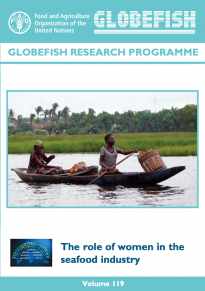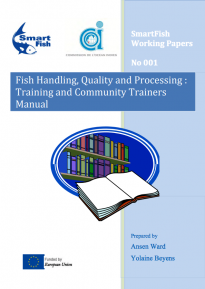Equitable Social and Gender Environment for Artisanal Fish Drying
Many dried fish processors in developing countries are women. They often work in environments which lack the services and infrastructure that enable them to invest in and implement best practices. Specific, targeted, gender focused interventions are required for this often vulnerable stakeholder group.
In West Africa, it is traditional for women to process and market fish. While women are often forbidden from going fishing, they derive substantial status and income for their households from processing activities. Women, such as these, in a developing country context, require appropriate technology and gender sensitive services to be easily accessible to them so they can also carry out other activities such as childcare, cooking, and gardening. The location of technology, such as drying racks, is important in terms of gender. For example, as women often combine domestic work and child care with fish processing, the use of drying racks will be encouraged if the racks are near to women’s homes.
Key Publications
Improvements of fish drying racks in Burundi are detailed and benefits discussed. | |
The Role of Women in the Seafood Industry This report aims to increase awareness of the value women bring to the seafood industry, and to encourage business leaders and policymakers to consider women when developing a new project or a policy. | |
Fish Handling, Quality and Processing: Training and Community Trainers Manual This document includes information related to food law implementation. |











